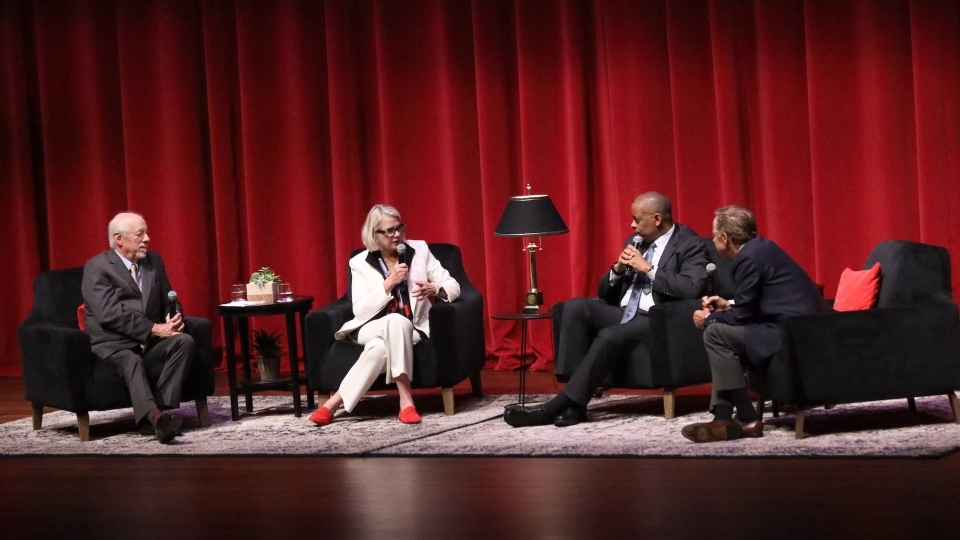Governors From Both Sides of the Partisan Divide Interview Political Bridge-builders Live at Davidson College
October 11, 2024
- Author
- Jay Pfeifer

In late September, former Tennessee Governors Phil Bredesen (D) and Bill Haslam (R) recorded a live episode of their podcast “You Might Be Right” in the Duke Family Performance Hall at Davidson College. The event was one of the centerpieces of Davidson’s “Engaging in Democracy” programming that focuses on civil discourse and political engagement during the 2024 election.
“We bring thoughtful practitioners of civil discourse to campus so they can model mutual respect instead of trading insults,” President Doug Hicks said. “Together, we can reflect on what effective, ethical leadership for the public good can look like.”
The show takes its name from one of Senator Howard Baker’s most often-cited pieces of advice: always keep in mind that the other fellow might be right.
The hosts talked about overcoming political polarization with two experienced bridge-builders: the Hon. Anthony Foxx '93, who was Secretary of Transportation under President Barack Obama and the Hon. Margaret Spellings, who served as Secretary of Education under President George W. Bush.
Both guests reflected on their efforts to pass legislation despite deep partisan division. Foxx helped to foster an unlikely partnership between California Democrat Senator Barbara Boxer and Mitch McConnell, Senate Republican leader, to pass the 2015 transportation bill. Spellings, meanwhile, passed the No Child Left Behind Act with overwhelming bipartisan support.
Their conversation is available on the podcast’s website and wherever you get your audio content – including Apple Podcasts and Spotify.
Davidson College actively encourages engagement in democracy by providing to students, faculty and staff resources and programs for voting, civic action and issue awareness. In partnership with local and national organizations, the college offers curricular and cocurricular initiatives that facilitate mutual respect and difficult conversations and that prepare students to become effective, ethical leaders and citizens who help advance the public good.



